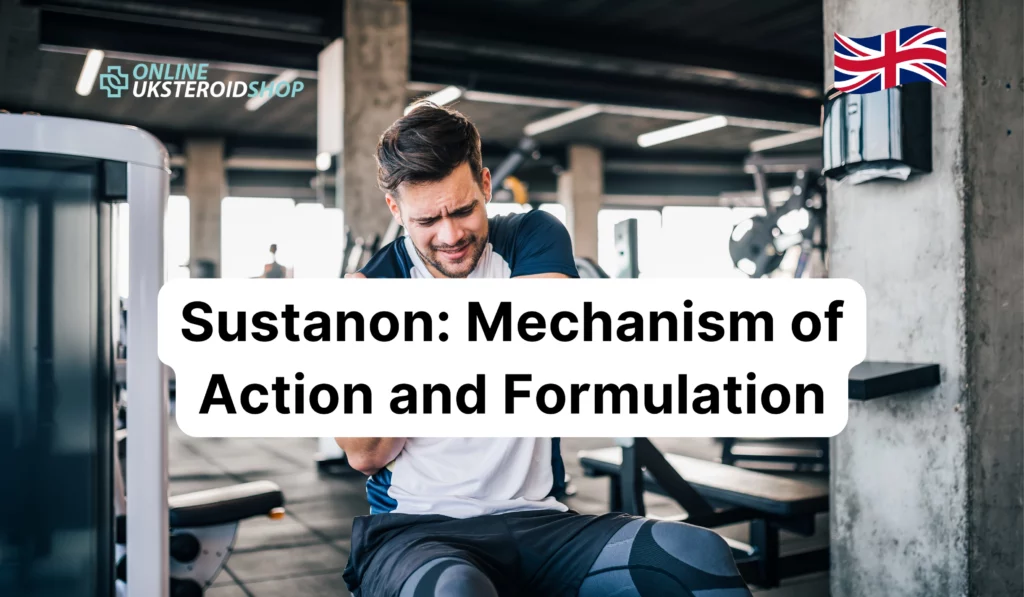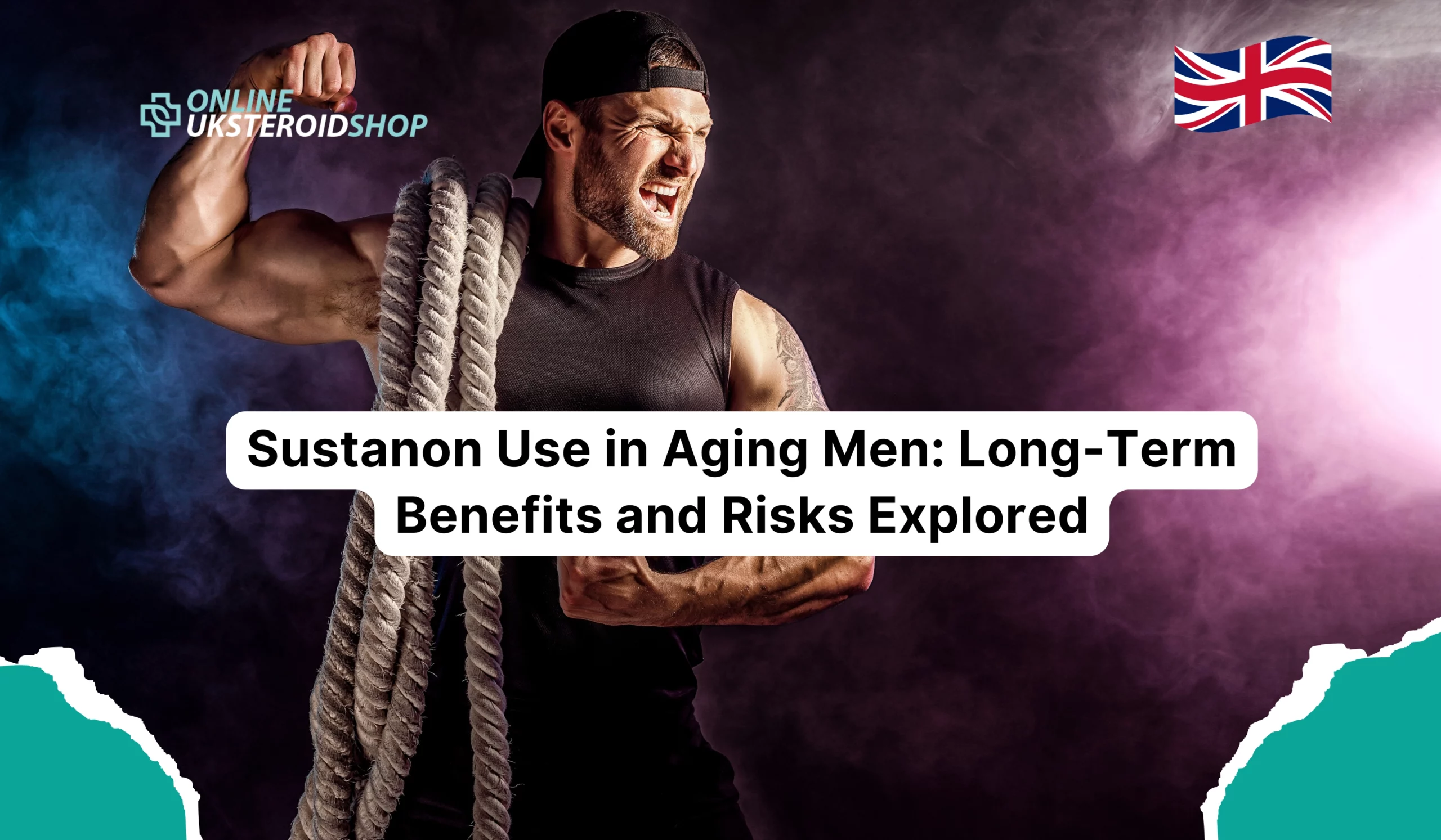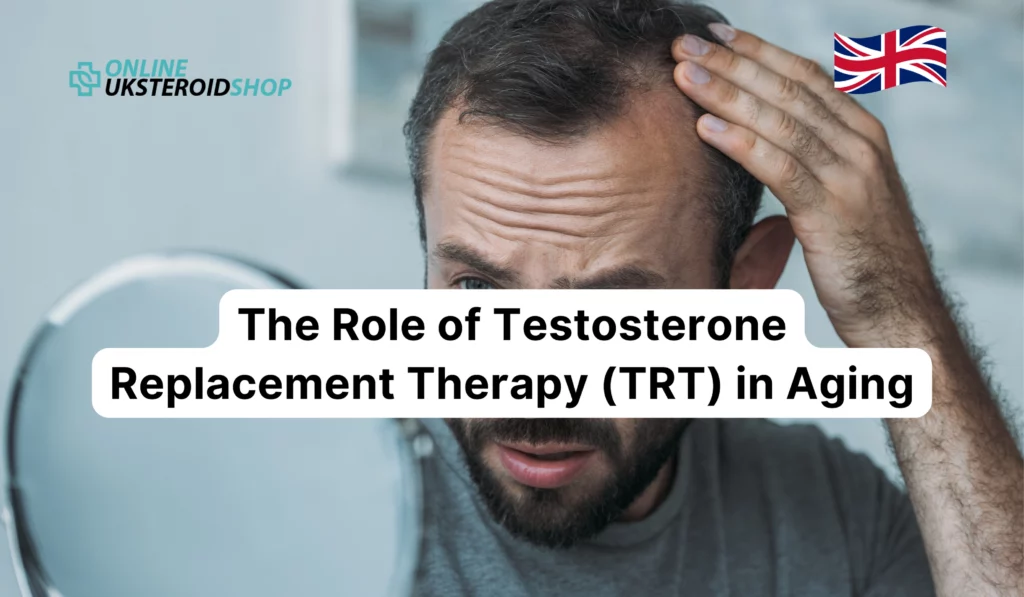Testosterone Propionate (Sustanon) Use in Aging Men: Long-Term Benefits and Risks Explored
Testosterone Propionate (Sustanon) Use in Aging Men: Long-Term Benefits and Risks Explored
Testosterone Propionate (Sustanon) is the name of a testosterone replacement therapy (TRT) that many physicians prescribe to patients. Who has lower testosterone levels, particularly, as they grow older? It contains different testosterone esters, which are a combination of Testosterone Propionate (Sustanon), testosterone phenylpropionate, testosterone isocaproate, and testosterone decanoate.
This mechanism of action allows for a smooth testosterone flow into the bloodstream. Somehow, this gives the hormone a constant level in the blood. Testosterone Propionate (Sustanon) can be administered by intramuscular injection, and so far it has shown a good efficacy in relieving symptoms. This can be traced back to low testosterone levels, including decreased libido, fatigue, and loss of muscle mass.
Understanding Aging in Men
During the ageing process, the level of testosterone production in men begins to slowly fall. This drop is as andropause or male menopause, which brings along different physical and psychological manifestations.
- reduced energy,
- diminished muscle strength,
- weight gain,
- impairment of mood,
- and sexual dysfunction.
These alterations could particularly affect a man’s life ethos and his overall health. The pinpointing of the physiological and psychological complications of ageing in men gives a comprehensive guide for testosterone administration therapy like Testosterone Propionate (Sustanon).
Testosterone Propionate (Sustanon): Mechanism of Action and Formulation

Testosterone Propionate (Sustanon) works by releasing testosterone into the bloodstream, where it binds to androgen receptors in various tissues throughout the body. This binding activates specific cellular pathways that regulate a wide range of physiological functions, including muscle growth, bone density, mood regulation, and sexual function.
The formulation of Testosterone Propionate (Sustanon) consists of different testosterone esters with varying half-lives. That ensures a sustained release of testosterone while maintaining stable hormone levels in the body. This mechanism of action allows for less frequent dosing. Compared to other forms of testosterone replacement therapy, it enhances convenience and compliance for patients.
- Physiological Changes:
Testosterone Decline: With time, ageing men undergo a gradual decrease in testosterone production by the testes, and, so, the level of this hormone in the bloodstream drops compared to the previous evolutionary state.
Loss of Muscle Mass: Decreased testosterone levels result in the erosion of muscles and, consequently, the loss of muscle strength. This may eventually lead to a loss of mobility and the stubbornness to fall, causing fractures.
Increased Body Fat: When testosterone levels fall off, typically men get an increase in the amount of fat around the abdomen and their bodies as a whole, resulting in weight gain and changes in body composition.
Decreased Bone Density: Further, low testosterone may also cause complications in the bone health of old men, thus, increasing the likelihood of bone fractures and osteoporosis.
Decline in Sexual Function: Testosterone, the male sex hormone involved in the libido and erectile functions, has a decrease in its production with age, causing a fall in sexual desire and poor performance in bed.
-
Psychological Effects:

– Mood Changes:
Ageing men, with lower testosterone levels, can have severe mood swings, become more explosive or tensed, or may be depressed and anxious.
– Fatigue and Low Energy:
In the same way, the decline in testosterone could be involved in the process of weakening an individual, for example, with increasing fatigue and decreased energy resulting in difficulties in completing simple everyday tasks as well as feeling unproductive.
– Cognitive Function:
The experts opine that testosterone is indeed the guilty party here, as low testosterone levels have been linked to older men’s problems like slightly poorer memory and concentration.
Simply put, a personal knowledge of the molecular biology and cognitive psychology of ageing in males is vital for assessing possible midlife interventions. Such as the use of testosterone replacement therapy (TRT), aimed at mitigating symptoms and thus enhancing general status. This might be true; however, it is more important for people to consider their health benefits, hidden risks, and the most preferred outcomes for check-ups.
The Role of Testosterone Replacement Therapy (TRT) in Aging
Testosterone replacement therapy (TRT) is a salient modality of treatment for men exhibiting the disorders of ageing including those having lower testosterone levels. TRT aims to diminish the symptoms and boost the health and joy of life through the standardization of testosterone levels. Here are some key points regarding the role of TRT in ageing:
Here are some key points regarding the role of TRT in ageing:
-
Benefits of TRT:
– Symptom Relief:
Hormonal balance is no longer an issue due to TRT. And symptoms like fatigue, decreased libido, erectile dysfunction and mood swings can be significantly reduced.
– Improved Physical Function:
During the reduction of testosterone, men can suffer several changes that can be prevented by TRT. Among them are the loss of muscle strength, and eventual osteoporosis that leads to fractures. And eventually age-related changes in physical performance.
– Enhanced Mental Well-being:
Research indicates that TRT helps in some sense in elevating mood, and improving cognitive function. And overall psychological health in men with T levels insufficiency by decreasing the texture of anxiety and depression symptoms.
– Sexual Health:
Testosterone substitute treatment may be crucial for the population of ageing people who report difficulties having erectile function on, sexual desire. And overall sexual happiness, helping these people to feel good about themselves and each other.
-
Considerations for TRT:
– Potential Risks:
However, the potential of TRT protection and effectiveness is conditional and abortion is present. The side effects, which might show up as water retention, acne, obstructive sleep apnea, and enlarging of the prostate gland, are possible. Some men who use TRT for a long period can suffer from raised cardiovascular incidence and develop prostate cancer.
– Lifestyle Modifications:
Besides therapeutics, implementing lifestyle changes like regular exercise, good diet, and weight management. Enough sleep will also improve the benefits of HRT as well also overall well-being as they grow older among the men.
The major testosterone replacement therapy (TRT) provides a solution for the prevalent symptoms in middle-aged men
- Low testosterone levels
- pay attention to personal health data,
- The risks and benefits of this treatment are a must to achieve safe and good results.
– Individualized Treatment:
TRT should be individualised according to the patient’s exact symptoms and health status, among other things, together with his or her treatment goals. The conduct of close-up follow-up by a healthcare professional is required to provide a proper dosage and therapeutic effect assessment.
Frequently Asked Question
1- What does Testosterone Propionate (Sustanon) do to your body?
Testosterone Propionate (Sustanon) is a formulation containing four types of testosterone which in turn raises the testosterone level in the body. And may lead to the improvement of muscle mass, bone density, mood as well and sexual functionality.
2- What is the Testosterone Propionate (Sustanon) injection used for?
Testosterone Propionate (Sustanon) is the major therapy with the help of testosterone replacement therapy (TRT) and it treats symptoms of low testosterone in men.
3- Is Testosterone Propionate (Sustanon) a good testosterone?
Testosterone Propionate (Sustanon) proves helpful in testosterone therapy for some. but the suitability of each case depends on a wide range of variables like medical history, individual preferences and side effects.
4- Is Testosterone Propionate (Sustanon) considered a steroid?
Indeed, Testosterone Propionate (Sustanon) is a steroid. This is composed of synthetic testosterone derivatives and is being used mostly for performance augmentation, though it can be also prescribed medically for testosterone replacement therapies.





